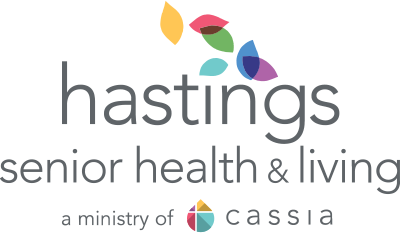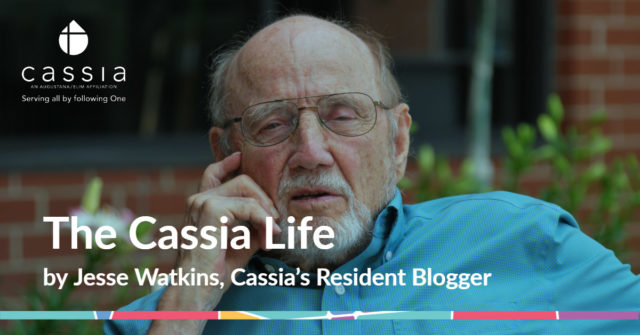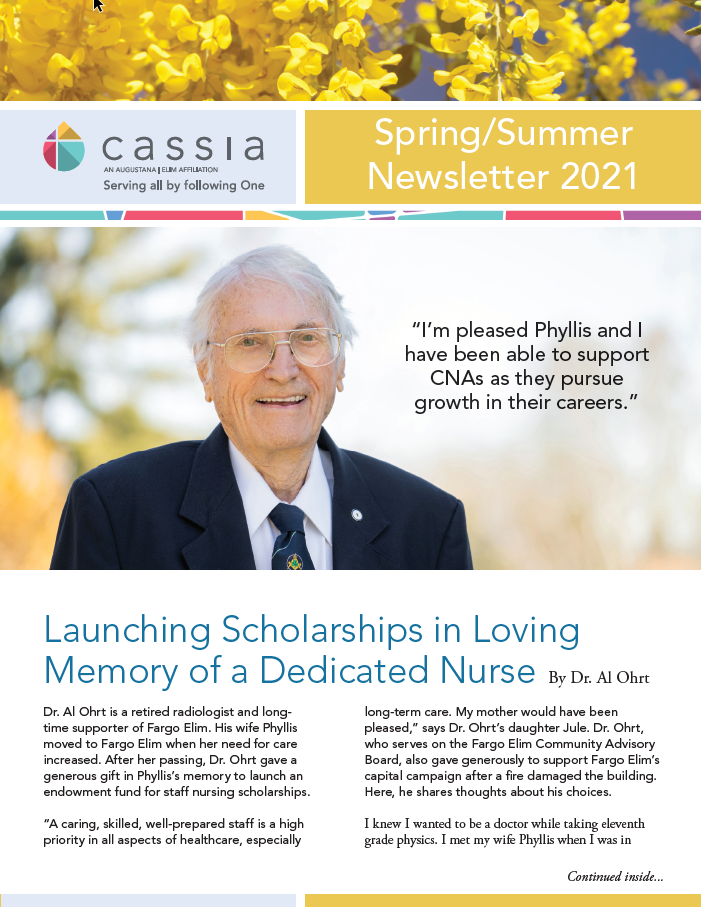The Cassia Life
By Jesse Watkins, Cassia’s own resident blogger
Ask grandma what she wants most from her adult kids and her little ones and she’ll say every time, come see me more often.
Then she may add, at least call me any time you can, whenever you can. What she probably won’t say but may be thinking is that when you do call she knows she still has a place in your heart, a place in your busy life. And it helps her keep a place in her heart for you. It’s not exclusive to grandmothers, of course. It fits granddads as well, and mothers, dads, brothers, sisters and friends. And it will apply to you and me one day, maybe does already.
Perhaps the most complicating of all is the thousand miles between you and grandma. Or the hundred. Sure, another family member or friend caregiver is on site. Things are taken care of, grandmother’s needs are met. No need to worry.
Problem is, out of site out of mind. You and I don’t want to be forgotten, even by grandma or granddad with an expanding memory problem.
So plan a trip. Or pick up the telephone. Call your grandmother, grandfather, mom, dad, good friend.
It’s my good fortune to be an observer of how distant, along with close-by caregiving works and at times doesn’t. Clay Smith of southern Minnesota, brothers James and Chris Smith and sister Megan Lucas, are the family caregivers for their dad, Harold G. Smith II, best known as Smitty. Clay is 500 miles away, Megan also is distant, and Chris is at home but operating the farm. That leaves James the one family person close by to meet Smitty’s needs. James also is editor of a local weekly newspaper. The family’s home, a farm, is in central Missouri.
At age 88, Smitty has a decreasing ability for self care, non-Alzheimers dementia, and significantly impaired memory. His condition gradually worsened after his wife died in 2013. Expanding needs and caregiver pressure on James made a move to skilled care necessary, and in early September Smitty was admitted to a nearby VA Home.
To create a window into Smitty’s care as provided lovingly by James (on-site) and Clay (distant), prior to and since the move to the VA Home, I interviewed both men by telephone. Revealed clearly is the difficulty of the distant sibling to contribute significantly to the workload and decision-making.
Question: Clay, what have you been contributing to Smitty’s care?
Clay: My only part is to support my brother, James, who is the primary caregiver. I‘m advisory. When I go to visit I can give him a break, free him up to concentrate on his editor work at the newspaper. For a while he doesn’t have to be concerned about what’s happening to our father at the VA Home.
Question: James, what did you learn from the several years as the major caregiver for your Dad, with Clay and Megan far away?
James: That communication is very important and that more time was required of me than expected.
Question: Clay, what would you go back now and change if you had the power.
Clay: The only thing possible would have been for me to go down there more often. But it’s an eight- or nine-hour drive and I can’t be gone every weekend.
James: It would have been nice if brother and sister had come to the farm more often, but they have lives of their own to lead.
Question: Do you feel freed up some now that Smitty is receiving in-patient care?
James: Maybe a little, it’s only been a month now, and nature abhors a vacuum; I’m a journalist which also is demanding as to the personal life.
Question: Is Smitty receiving better care now than he did at home?
James: Maybe in some ways. His incontinence is managed better, I like to think the VA staff makes sure he eats right. And there’s a nurse within shouting distance 24/7.
Question: Clay, what will you actually do now when you go to visit your dad?
Clay: I’ll spend time with him at the VA, evaluate him from my own point of view, relieve James, and maybe handle some insurance matters.
Question: James, what would enhance the teamwork when distant helpers are involved?
James: For them to find more time to visit our father.









